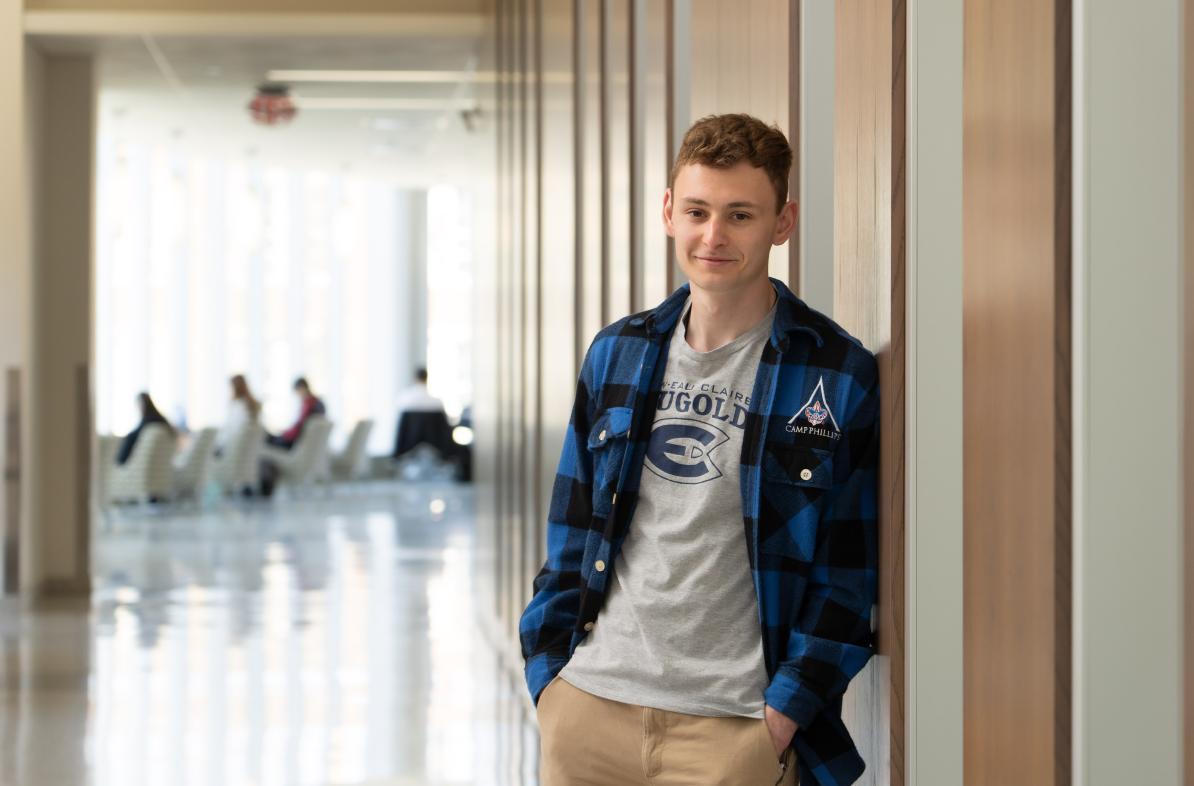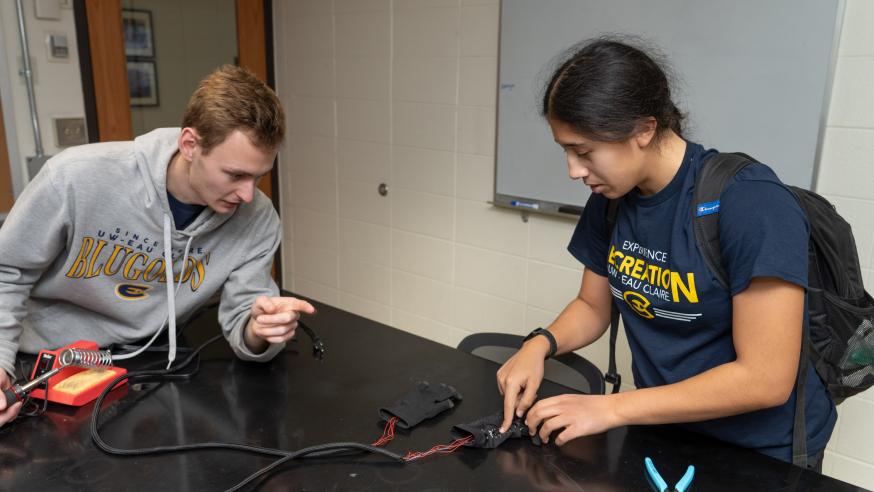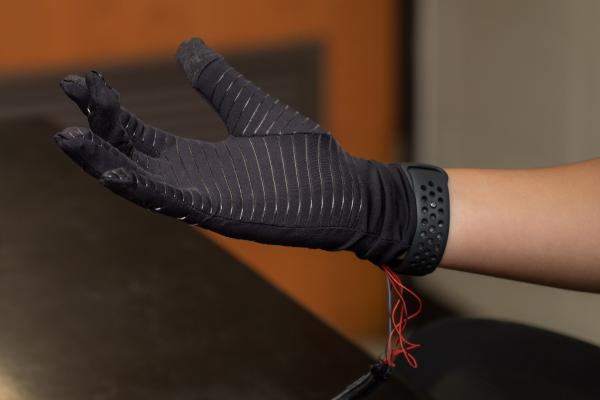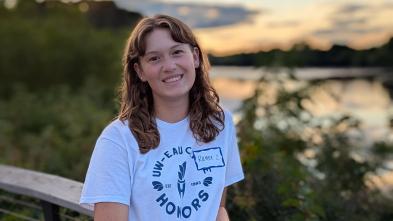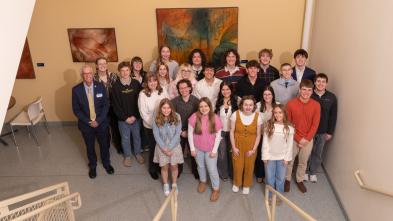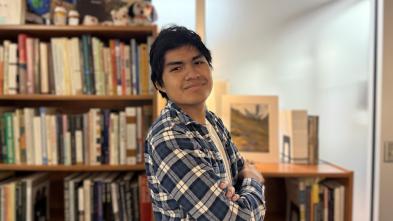“My mother is a biochemist, and my dad is an electrical engineer, so this field sort of merges two very familiar worlds for me,” says the Pecatonica, Illinois, native.
Berry says that while he may have originally seen himself at an R1 university — a designation for universities with the highest level of research — once he investigated the unique research and other undergraduate opportunities at UW-Eau Claire, along with the affordable cost, the school choice was easy.
Now, as he prepares to graduate debt-free, Berry has even more appreciation for finding UW-Eau Claire.
“To have received such a top-notch education, taken part in advanced research at the undergraduate level and be leaving here with no student loans looming over my head is truly amazing,” he says. “I feel very blessed.”
Standout student in university honors
Berry will graduate on May 17 with a bachelor’s in the challenging comprehensive major of biomedical engineering, along with minors in biology and physics. He calls his academic journey “a very packed four years.”
But he did not stop there in pushing himself to strive for excellence, as he also is a graduate of the university's Mark Stephen Cosby Honors College.
According to Dr. Heather Fielding, professor of English and director of the Cosby Honors College, Berry has been not only a talented honors student, but a reliable leader who helped shape unique honors experiences for the entire program.
As a freshman, Feilding says, Berry “single-handedly organized” a new service project for honors — a merit badge workshop for Boy Scouts where honors students taught merit badge courses.
“There are creative ways to earn honors credits at UWEC, in addition to taking designated honors courses,” Berry says. “I chose to do several independent study-type credits. It was fun to combine my interests in creative ways. Scouting was a major part of my life and I’ve been happy to work with the local Scouting community while involving other Blugolds in the process.”
Fielding says Berry worked with a local community member on another project to develop an honors course on leadership that matched groups of students with local nonprofits to complete a semester-long service project.
“This course, which will run this fall for the third time, quickly became one of our most unique and beloved offerings, for the way it gives students real-life, community-based leadership experience,” Fielding says. “Dylan was never just a student in honors — he helped shape the program to create new student opportunities. Honors really would not have been the same without his energy and leadership.”
Taking advantage of opportunities to lead
In addition to university honors, Berry has been an active student in multiple out-of-classroom ventures, including:
- Biomedical Engineering Society, president
- Oaks International member, a campus ministry organization
- Student researcher on four collaborative projects
- Contributor/reviewer on three peer-reviewed publications in BME
- Summer internship with Thermo Fischer Scientific in Illinois
One ongoing lab research project Berry participated in is a collaboration between the kinesiology and biomedical engineering departments, the creation of a prototype for a vibrating glove intended to reduce tremors for Parkinson’s patients. His department mentor was Dr. Marc Mc Ellistrem, professor of materials science and biomedical engineering.
